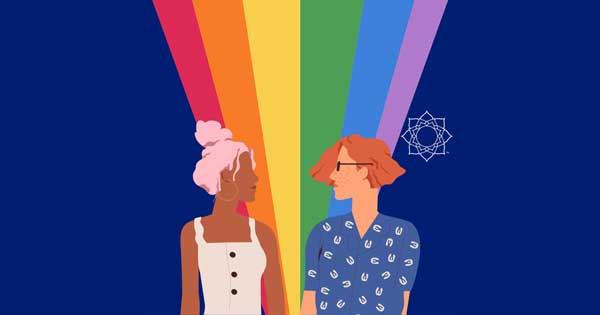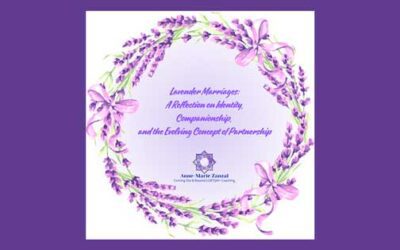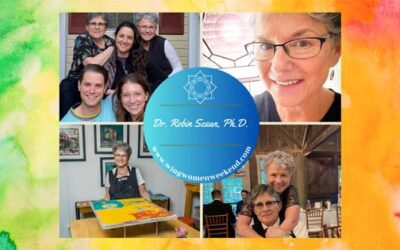Outside the Heteronormative Model – How Lesbian Relationships Are Different by Barb Rowlandson.
Many of us experience what could be described as a “second adolescence” when we come out in adulthood – primarily because we may not have fully experienced our first, at least not in the way our heterosexual peers did. Coming out later can be a time of great discovery and understanding, when the conversations of our teenage years finally start making sense.
1. Expect to Feel Like a Teenager Sometimes
It’s truly wonderful when our sexual desires and those of our partners coincide. This juncture in life calls for us to be uncompromising, particularly when following a lengthy marriage to someone of the opposite sex. After years of feeling unfulfilled or stuffing our authentic sexual desires to live according to a prescribed ideal that does not suit us, it may consequently feel impossible to compromise our sexual needs and desires after throwing off the shackles of heteronormativity.
2. Don’t Settle
If you’re new to intimate, romantic lesbian relationships, brace yourself for a significant increase in intimacy, even if you’re not always open to it. We women are such great communicators! Women often seek to solve issues through discussion, which can be refreshing after a long-term relationship with a man. A word of caution though: long, deep conversations are illuminating and facilitate connection, but they also can be very draining!
3. Prepare for More Intimacy
In heterosexual relationships, roles and responsibilities are often sharply divided along gender lines. And, often in heteronormative marriage, women do the lion’s share of physical and emotional labor. You can expect a more balanced dynamic in lesbian relationships, where the romantic initiation and household responsibilities tend to be more equally shared.
4. You Get to Determine Who You Are
You may find that some friends and family members are less than totally accepting of your new relationship. They may view your partner as an outsider or, worse, a seducer who’s luring you into a ‘lesbian phase.’ Though it may feel difficult and it definitely requires a lot of patience and courage, be firm and true to yourself. Make it clear that your identity and choices are not up for debate, regardless of the future of any single relationship. Remember the only person who gets to name your sexuality is YOU.
Society assumes heterosexuality of everyone by default. When babies are born, we usually hear “It’s a boy!” or “It’s a girl!” and think no more about it. Similarly, parents, friends, teachers, everyone just assumes kids are straight (until they express otherwise).
No one tells young teens “hey, you should go sleep with a bunch of different kinds of people to figure out your sexuality.” Young people who are straight are never challenged about their sexuality, no one asks them “are you sure you’re straight?” And yet, young queer people very often are challenged when they come out. They are asked “are you sure?” or told they haven’t slept with enough people yet to know for sure, or told that it’s “just a phase.” Well, guess what – this often happens to people coming out later in life too.
5. Being Queer isn’t a “Phase”
The notion that an individual must explore their sexuality extensively to confirm their orientation is a misconception. You are the person who gets to decide who you want to partner with. Finding a meaningful relationship later in life can be challenging; when you find that someone special and she happens to be a woman, disregard the misguided advice of well-meaning friends who may encourage you to think of your queerness as a ‘phase.’ They may not fully understand your journey and guess what? They don’t have to understand it. Their only job as family members and friends is to love and accept you for exactly who you are today.
6. Save Divorce Talk for Your Therapist
If you’re still in the process of unraveling your old, straight life, you’ll need proper guidance and support. It’s advisable not to lean into your new partner when you need to process feelings about your past marriage or divorce. Think about it– if you were straight and dating a new man after divorcing your husband, would you unpack all your feelings about your ex with your new boyfriend? No, you wouldn’t. The same principle applies to lesbian relationships. While openness is valued in relationships, consider the sensitivity of your new partner’s feelings. They’re here for you now, excited about the possibilities ahead, not the lingering ties to your past. It’s better to work through these feelings with a therapist, coach, or a supportive friend who understands.
7. Recognize the Worth of Your Relationship
Lastly, it’s crucial to recognize that there may be some in your sphere who won’t see the legitimacy of your lesbian relationship in the same way they do heterosexual partnerships. This discrepancy is a reflection of societal biases. Your relationship might not look like those of the people around you, and that’s ok. If you’re happy and fulfilled in your lesbian relationship, that’s all that matters. Stay true to what you share with your partner – love, connection, camaraderie, understanding – and know fully within yourself that it is undiminished by external prejudices.
Anne-Marie Zanzal and Barb Rowlandson will host a workshop What You’ve Gotta Know Coming Out next week. You can find out all the info at comingoutsupport.net. We start at 7:00 PM CST on Zoom. You must sign up to attend.





